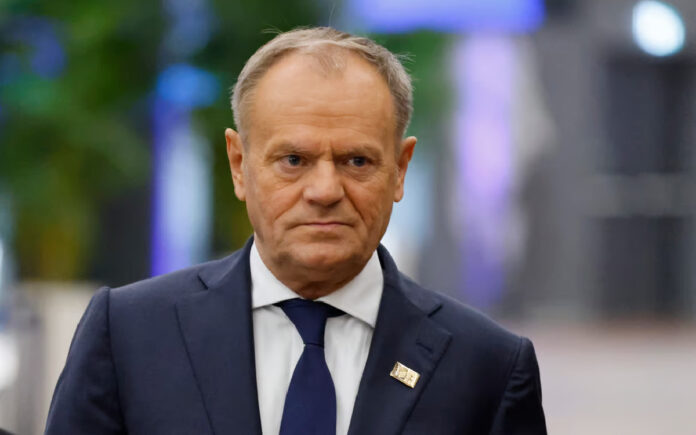Warsaw: Polish Prime Minister Donald Tusk has called on the European Union to confiscate Russia’s frozen central bank assets to fund financial assistance for Ukraine. His proposal comes as concerns grow over the possibility of a U.S. withdrawal from supporting Kyiv.
Currently, the EU has only utilized the interest generated from Russia’s frozen assets—valued at approximately €210 billion—to provide military and financial support to Ukraine. However, full confiscation remains legally complex, as these assets are considered sovereign Russian property and protected under international law.
“Enough talking, it’s time to act,” Tusk posted on X. “Let’s finance our aid for Ukraine from the Russian frozen assets.”
Enough talking, it’s time to act! 1. Let’s finance our aid for Ukraine from the Russian frozen assets. 2. Let’s strengthen air policing, the Baltic sentry and the EU borders with Russia. 3. Let’s swiftly adopt new fiscal rules to finance the EU security and defence. Now!
— Donald Tusk (@donaldtusk) February 20, 2025
His remarks follow growing fears that U.S. President Donald Trump, engaged in a tense standoff with Ukrainian President Volodymyr Zelenskyy, may sever all assistance to Kyiv. Trump has previously blamed Ukraine for the war and referred to Zelenskyy as a “dictator without elections,” mirroring Kremlin rhetoric.
U.S. Secretary of Defense Pete Hegseth recently stated that Europe must now bear the “overwhelming share” of military and humanitarian support for Ukraine, as Washington shifts its strategic focus to the Pacific.
With the U.S. pivoting away from European security, the EU is exploring ways to expand its defense budget. However, economic stagnation and fiscal constraints have left limited options. Seizing Russia’s frozen assets could provide a critical financial boost, yet the move requires unanimous approval among EU member states.
Hungary, a strong opponent of EU sanctions on Russia, is likely to resist, while Germany has also expressed legal and diplomatic concerns. Meanwhile, the Kremlin has threatened retaliation should the EU proceed with confiscation.
Tusk is pushing for broader security reforms, urging the bloc to “strengthen air policing, the Baltic sentry, and the EU borders with Russia,” while also “swiftly adopting new fiscal rules” to sustain defense spending.
“Now,” he emphasized, underscoring the urgency of action.
The EU’s fiscal framework, which limits national debt and deficits, was revised last year, but calls for exempting defense spending from these rules were rejected. Now, as security threats mount, the demand for increased military investment is gaining momentum.
Also Read | Rome’s Real Estate Revival: Investors Turn to the Italian Capital
European Commission President Ursula von der Leyen recently proposed activating an “escape clause” to ease budgetary constraints and “substantially” boost defense spending. Estimates suggest the EU will need to invest €500 billion in defense over the next decade to continue aiding Ukraine while reinforcing its own security.
Meanwhile, Polish Foreign Minister Radosław Sikorski has suggested establishing a European rearmament bank to finance the continent’s growing military needs.



